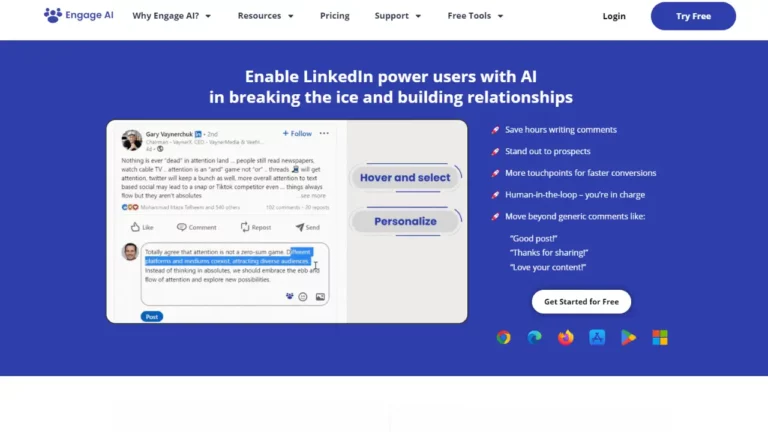Vectorizer AI

Vectorizer AI is a web-based tool that converts raster pictures into vector graphics, enabling indefinite scaling without loss of quality. This versatile tool is ideal for large-format printing, online graphics, and high-resolution applications. It allows for easy adjustments to colors, shapes, and sizes, making it easier to edit than raster pictures. Vector graphics are also compatible with cutting machines like Cricut and Silhouette, as they require vector format.
Key Features of Vectorizer AI:
Full Color Vectorization: Images with a broad variety of colors are accurately converted into high-quality vector drawings.
AI-Powered Automation: Advanced AI algorithms are used to automatically trace and convert pixels to vectors, removing the need for manual effort.
Easy to Use: Uploading photos to be vectorized is as simple as dragging and dropping or pressing a keyboard shortcut.
High Performance: Uses GPUs for deep learning tasks and multi-core CPUs for rapid processing, resulting in short turnaround times.
Sub-Pixel Precision: Produces high-quality outcomes by recognizing subtleties such as anti-aliasing and sub-pixel characteristics.
Fully Automatic: There is no need to manually modify or clean up the vectorized picture.
Image Type Versatility: Works well with a variety of image kinds, including logos, drawings, sketches, and pictures (with certain limits).
Export Options: You may download vectorized pictures in a variety of formats, including SVG, PDF, EPS, DXF, and PNG.
Use Cases For Vectorizer AI Review
Scalability: Vector graphics may be scaled to any extent without losing quality, but raster pictures have significant limitations. This makes Vectorizer AI useful for designers who need to develop visuals that can be utilized in a variety of sizes, such as logos, icons, and drawings for online or print.
Editing: Vector graphics are easier to modify than raster pictures because they consist of pathways and forms rather than pixels. Vectorizer AI may be used to transform photos into a format that allows for easier manipulation in design tools.
Printing: Vector drawings are perfect for printing because they can be scaled to any size while maintaining quality. This makes Vectorizer AI an excellent tool for designers who generate visuals for billboards, banners, and signs.
Creative Exploration: Vectorizer AI can convert current pictures, logos, or photos into vector forms, allowing designers and artists to explore new creative possibilities.
Textile Design and Crafting: Vector images are ideal for usage with cutting devices like vinyl cutters or laser cutters. Vectorizer AI can transform photos into a format suitable for making stencils, stickers, and other craft items.
Vectorizer AI: Pros and Cons
Pros:
Effortless conversion: Vectorizer AI automates the process of converting raster pictures to vectors with AI, saving time and effort over manual tracing.
High-quality results: The AI algorithms are intended to handle complicated features and accomplish precise vectorization with sub-pixel precision.
Scalability: Converted vector drawings may be scaled endlessly without loss of quality, making them ideal for printing big banners or modifying designs.
Improved workflow: Vectorizer AI enables designers and other creatives to effortlessly incorporate existing raster graphics into vector-based creations.
Multiple export formats: Allows you to download in a variety of formats, including SVG, PDF, and DXF, depending on your needs.
Wide range of applications: Useful for graphic design, printing, web design, content production, and even cutting-machine craft tasks.
Easy to use: Beginners will find the application easy to use thanks to drag-and-drop capability and simple keyboard shortcuts.
Cons:
Limited photo conversion: Vectorizer AI can handle certain photographs, however complicated images with detailed features or gradients may not convert correctly.
Potential for errors: AI is still in progress, and even with powerful algorithms, there is a risk of misinterpretations throughout the conversion process, particularly with complex photos.
No manual editing: Vectorizer AI is automated, thus you may not be able to fine-tune the converted vector or correct small problems.
Limited control: You cannot directly manage the vectorization process, which may be an issue for experienced designers who prefer a more hands-on approach.
Privacy concerns: Uploading photographs to an online tool may cause privacy issues for certain users, particularly if the images include sensitive information.







